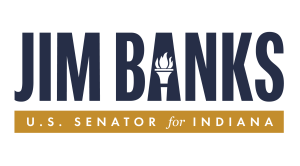WASHINGTON, D.C, – Today, Senators Jim Banks (R-Ind.) and Catherine Cortez Masto (D-Nev.) introduced the Curbing Unreasonable Renumeration at Banks Act. This bipartisan legislation grants the Director of the Federal Housing Finance Agency the authority to set reasonable compensation levels for senior executives. Over the years, the Federal Home Loan Banks’ mission of supporting affordable housing and community lending has taken a back seat to incentivizing profit-driven behavior. As government-sponsored enterprises, FHLBs operate with public backing, including access to low-cost borrowing through government-implied guarantees, which gives them a unique responsibility to prioritize public interest over private gain. However, a 2023 report from the FHFA indicated that executives earned bonuses tied to financial performance metrics that did not advance affordable housing goals.
Senator Jim Banks (R-Ind.): “Federal Home Loan Banks exist to help Americans buy homes, not to pad the pockets of executives. This bill keeps FHLBs on mission and empowers President Trump and FHFA Director Pulte to eliminate excessive pay and waste of government resources.”
Senator Catherine Cortez Masto (D-Nev.): “While the Federal Home Loan Bank system has continued to fail to meaningfully invest in affordable housing and community development, it pays its executives millions each year. This bipartisan legislation gives the Federal Housing Finance Agency more oversight over FHLBanks executives’ compensation to help make sure the system delivers for working families.”
Read more about the Curbing Unreasonable Renumeration at Banks Act from the American Banker here.
Key Provision of the Curbing Unreasonable Renumeration at Banks Act are:
- Direct the Federal Housing Finance Agency to oversee and establish more reasonable pay amounts for top executives.
Full bill text can be found here.
Background:
In April 2025, Sen. Banks and all other Republicans on the Senate Banking Committee sent a letter to Federal Housing Finance Agency Director Bill Pulte asking for more oversight on compensation for the FHLBs.
The Congressional Budget Office estimates that in fiscal year 2024, the net government subsidy to the FHLB system will amount to $6.9 billion. That subsidy is net of the FHLBs’ required payments, totaling 10 percent of their net income, to member institutions for affordable housing programs. The FHLBs earned $6.3 billion last year.
